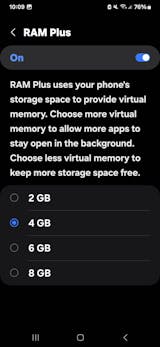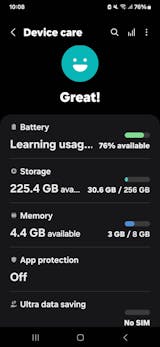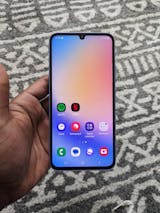Be the first to hear about the newest phones!

The Conundrum of Switching: Exploring Why iPhone Users Struggle to Transition to Android Phones
In the realm of smartphones, the choice between iOS and Android has long been a defining decision for consumers. While both platforms offer their unique strengths and features, there exists a phenomenon wherein iPhone users often find it challenging to make the switch to Android devices. This transition, though seemingly straightforward, is laden with complexities that extend beyond mere technical specifications. In this composition, we delve into the multifaceted reasons why iPhone users often encounter difficulty when contemplating and executing the switch to Android.
-
Ecosystem Lock-In: Apple has masterfully cultivated an ecosystem that engenders user loyalty through seamless integration across its devices and services. From iCloud for storage to iMessage for communication and the tight integration with other Apple products like MacBooks and iPads, users become deeply entrenched within the Apple ecosystem. The prospect of leaving behind this cohesive environment can be daunting for many iPhone users, as they risk losing access to their data, messages, and the familiarity of a system they've grown accustomed to.
-
App Store Dependence: The App Store's extensive library and stringent curation have set a high standard for mobile app quality and security. iPhone users often become accustomed to the reliability and consistency of the App Store experience. Transitioning to the Google Play Store on Android introduces a new landscape, where app quality may vary, and the openness of the platform might lead to concerns regarding security and privacy. The fear of losing access to familiar apps or encountering compatibility issues further complicates the decision to switch.
-
Perceived Ease of Use: Apple's reputation for user-friendly design and intuitive interfaces has contributed to the perception that iPhones are easier to use compared to their Android counterparts. The consistency of iOS across different iPhone models, coupled with Apple's emphasis on simplicity, fosters a sense of comfort and familiarity among users. In contrast, the diverse range of Android devices from various manufacturers, each with its user interface (UI) modifications and features, can be overwhelming for those accustomed to the uniformity of iOS.
-
Social and Peer Influence: Human behavior is heavily influenced by social dynamics, and the choice of smartphone is no exception. In many social circles, owning an iPhone is associated with status, luxury, and a sense of belonging to an exclusive community. Peer pressure or the fear of being perceived differently by friends, family, or colleagues who predominantly use iPhones can act as a barrier to switching to Android. This social aspect adds an emotional dimension to the decision-making process, making it more challenging for users to break away from the iPhone ecosystem.
-
Investment in Accessories and Services: Over time, iPhone users often accumulate a range of accessories and subscriptions tailored to their devices. Whether it's a collection of Lightning cable chargers, compatible smart home devices, or subscriptions to Apple services like Apple Music or iCloud storage, users develop a significant investment in their iPhone-centric ecosystem. The thought of abandoning or replacing these accessories and subscriptions can deter users from making the switch to Android, as it represents a sunk cost that they may be unwilling to forfeit.
-
Perceived Risk and Uncertainty: Switching from one smartphone platform to another entails a degree of risk and uncertainty. Will the new device meet one's expectations? How steep is the learning curve associated with the new operating system? Can data be seamlessly transferred from the old device to the new one? These are just a few of the questions that may plague the minds of iPhone users contemplating a switch to Android. The fear of the unknown, coupled with the potential inconvenience of migrating data and adjusting to a new ecosystem, can be significant deterrents.
-
Brand Loyalty and Identity: Apple's brand identity and marketing prowess have cultivated a loyal following of users who identify strongly with the brand. For many, owning an iPhone is not just about the device itself but also about aligning with Apple's values, aesthetics, and innovation ethos. The emotional connection that users develop with the Apple brand transcends the tangible features of the device, making it challenging for them to envision themselves using a competing product like an Android phone, which may lack the same level of brand resonance.
In conclusion, the difficulty that iPhone users encounter when considering a switch to Android phones is a nuanced interplay of ecosystem lock-in, app store dependence, perceived ease of use, social influences, investment in accessories and services, perceived risk and uncertainty, and brand loyalty. While Android devices offer their own set of advantages and features, the decision to switch involves more than just comparing technical specifications—it requires navigating a complex web of emotional, social, and practical considerations. As smartphone technology continues to evolve, understanding these dynamics becomes essential for both consumers and manufacturers alike.
















Leave a comment